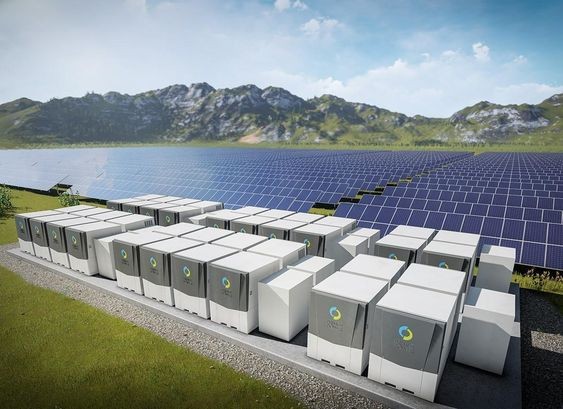In recent years, the convergence of solar energy and advanced battery technology has become a focal point in the quest for efficient and sustainable energy solutions. This synergy is not only reshaping the way we harness and store solar power but also driving significant advancements in energy storage systems. Let’s delve into how these innovations are transforming the landscape of energy solutions.
The Intersection of Solar Energy and Battery Technology
Solar energy represents a clean, renewable source of power that has gained considerable traction globally. However, one of the major challenges associated with solar energy is its intermittent nature; the sun doesn’t shine all the time. This is where batteries come into play. Advanced battery systems have emerged as crucial components in addressing this challenge, enabling more reliable storage and use of solar power.
How Advanced Batteries Improve Solar Energy Storage
Modern battery systems are designed to store excess solar energy generated during peak sunlight hours. This stored energy can be used during times when solar production is low or nonexistent, such as at night or on cloudy days. This capability significantly enhances the practicality of solar energy as a primary power source, ensuring a continuous supply of electricity.
Lithium-Ion Batteries: A Game-Changer in Solar Energy Storage
Lithium-ion batteries have become the gold standard in energy storage due to their high energy density, long cycle life, and relatively low self-discharge rate. These characteristics make them an excellent choice for storing solar energy. When coupled with solar panels, lithium-ion batteries can efficiently store and release energy, providing a steady power supply and maximizing the use of solar resources.
The Rise of Solid-State Batteries
In recent years, solid-state batteries have garnered attention for their potential to further revolutionize solar energy storage. Unlike traditional lithium-ion batteries, solid-state batteries use a solid electrolyte instead of a liquid one. This innovation offers several advantages, including improved safety, higher energy density, and longer lifespan. As solid-state batteries continue to advance, they are expected to play a significant role in the future of solar energy storage.
Benefits of Integrating Advanced Battery Systems with Solar Energy
Integrating advanced battery systems with solar energy offers numerous benefits:
- Enhanced Reliability: By storing excess solar power, these systems ensure a consistent supply of electricity even during periods without sunlight.
- Cost Savings: Efficient energy storage reduces reliance on the grid, leading to lower energy bills.
- Environmental Impact: Utilizing stored solar energy reduces the need for fossil fuels, contributing to a decrease in greenhouse gas emissions.
- Energy Independence: Homeowners and businesses can achieve greater energy independence by generating and storing their own power.
The Future of Solar Energy and Battery Technology
Looking ahead, the future of solar energy and battery technology appears promising. Researchers and engineers are continuously working on innovations to improve battery performance, reduce costs, and increase the efficiency of solar energy systems. Some of the areas of focus include:
- Development of next-generation battery materials: New materials are being explored to enhance energy density and performance.
- Integration with smart grid technology: Advanced battery systems are expected to play a crucial role in smart grids, optimizing energy distribution and usage.
- Expansion of residential and commercial applications: As technology advances, solar energy and battery solutions will become more accessible and affordable for a broader range of applications.
FAQs
Q1: How do advanced battery systems work with solar energy?
Advanced battery systems store excess solar energy generated during sunlight hours, which can then be used when solar production is not available. This ensures a continuous power supply and enhances the reliability of solar energy systems.
Q2: What are the advantages of using lithium-ion batteries for solar energy storage?
Lithium-ion batteries offer high energy density, long cycle life, and low self-discharge rates, making them ideal for efficiently storing and releasing solar energy.
Q3: What are solid-state batteries, and why are they important?
Solid-state batteries use a solid electrolyte instead of a liquid one, providing improved safety, higher energy density, and longer lifespan. They represent a significant advancement in battery technology for solar energy storage.
Q4: How does integrating battery systems with solar energy reduce energy costs?
By storing and using solar energy instead of relying on the grid, homeowners and businesses can lower their energy bills and achieve cost savings.
Q5: What is the future outlook for solar energy and battery technology?
The future looks promising, with ongoing advancements aimed at improving battery performance, reducing costs, and expanding the use of solar energy and battery systems in various applications.
Conclusion
The integration of advanced battery systems with solar energy is revolutionizing energy storage solutions, providing a more reliable, cost-effective, and environmentally friendly way to harness and use renewable energy. As technology continues to evolve, these innovations will play a crucial role in shaping a sustainable energy future. Embracing these advancements not only enhances energy efficiency but also contributes to a greener planet.






